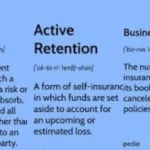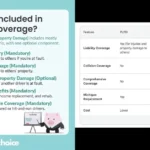Cannabis, also known as marijuana or weed, has become increasingly popular as it becomes legalized for both medicinal and recreational use in many parts of the world. While it has its benefits and fans, there are also moments when someone might feel too high—whether due to overconsumption or the strength of the product. A high that feels overwhelming or uncomfortable can cause anxiety, paranoia, confusion, and a host of other unpleasant sensations.
In these moments, it’s common to seek ways to “get unhigh” or sober up quickly. Whether you’re new to cannabis or experienced but caught off guard by a strong strain or edible, this guide will explore various methods to help reduce the effects of being too high, the science behind it, and how to avoid getting too high in the future.
Understanding the Cannabis High
Before diving into how to counteract a high, it’s essential to understand why it happens in the first place. When you consume cannabis, the primary psychoactive compound, THC (tetrahydrocannabinol), interacts with your body’s endocannabinoid system (ECS). This system has receptors, called CB1 and CB2, that are found throughout your brain and body.
THC binds to the CB1 receptors in the brain, producing the high that cannabis is famous for. This high can affect different people in various ways, including:
- Euphoria
- Relaxation
- Increased sensory perception
- Distorted sense of time
- Dry mouth
- Increased appetite (commonly known as the munchies)
However, when someone consumes too much THC, the high can become overwhelming. Common symptoms of being too high include:
- Anxiety or panic attacks
- Paranoia
- Disorientation or confusion
- Rapid heart rate
- Dizziness
- Nausea
If you find yourself in this situation, don’t panic. Although it can feel scary, a THC overdose is not life-threatening, and there are several techniques to help sober up.
How Long Does a High Last?
The duration of a cannabis high depends on several factors, such as the method of consumption, dosage, and individual tolerance. On average:
- Smoking or vaping: A high from inhaling cannabis typically lasts between 2-4 hours, with peak effects occurring within the first 30 minutes.
- Edibles: Edibles can take 30 minutes to 2 hours to kick in, and the high can last anywhere from 4-6 hours, with some lingering effects lasting up to 12 hours.
- Tinctures and oils: These can have effects that last 3-6 hours, depending on the dose.
It’s important to remember that even if you feel overwhelmed, the high will eventually wear off. In the meantime, there are several things you can do to help speed up the process and make yourself more comfortable.
Immediate Steps to Get Unhigh
- Stay Calm and Relax
The most critical step when you’re feeling too high is to stay calm. While it can be uncomfortable, it’s essential to remind yourself that the effects are temporary and will eventually pass. Breathing deeply, practicing mindfulness, or meditating can help you regain a sense of control over your mind and body.
A panic attack or heightened anxiety can worsen the experience, making the high feel more intense than it actually is. If you’re feeling nervous, try some of these relaxation techniques:
- Controlled breathing: Inhale deeply for four counts, hold for four counts, and exhale for four counts.
- Progressive muscle relaxation: Tense and relax your muscles, starting from your toes and working up to your head.
- Guided meditation: Apps like Headspace or Calm can guide you through calming meditations to distract from the effects of being too high.
- Hydrate
Drinking water is essential when you’re trying to sober up. Cannabis can cause dehydration and lead to dry mouth (commonly known as cottonmouth). Drinking water can help mitigate these effects and make you feel more comfortable. Avoid alcohol or caffeine, as they can dehydrate you further and exacerbate anxiety.
A bonus to drinking water is that it can help flush THC out of your system faster. However, it’s essential to note that drinking excessive amounts won’t magically make you sober, but it can help you feel a bit better.
- Eat Something
Having a snack can sometimes help ground you when you’re feeling too high. While munchies are a well-known side effect of cannabis, eating can also help balance your blood sugar levels and reduce the intensity of your high. Opt for light, healthy foods that are easy on your stomach.
Some specific foods and drinks may have additional benefits for sobering up from a high:
- Lemon: The terpenes found in lemon, particularly limonene, have been known to counteract the psychoactive effects of THC. Drinking lemon water or sucking on a lemon can provide some relief.
- Peppercorns: Odd as it may sound, black pepper contains compounds that can reduce the paranoia and anxiety associated with being too high. Simply sniffing or chewing on a few peppercorns can provide relief.
- CBD-rich foods: If available, consuming CBD can help balance out the effects of THC. CBD (cannabidiol) works as a counterbalance to THC by occupying cannabinoid receptors, effectively reducing the psychoactive effects of THC.
- Distract Yourself
Shifting your focus to something lighthearted or enjoyable can make time pass more quickly and reduce the intensity of your high. Watching a familiar, comforting movie or show, listening to your favorite music, or engaging in a simple, relaxing activity can distract your mind from the discomfort of being too high.
Activities like coloring, sketching, or doing a jigsaw puzzle are excellent for taking your mind off the high. Avoid anything that requires intense focus or critical thinking, as this could make the high feel more overwhelming.
- Take a Shower or Bath
A warm shower or bath can help you relax and bring a sense of normalcy to your body. The warm water can also help alleviate any muscle tension or discomfort caused by the cannabis high. If you’re feeling disoriented, sitting in a bath or standing under the shower can help ground you.
Alternatively, some people find that a cold shower is more effective for snapping out of the fog of a high. The shock of cold water can help bring clarity to your mind, although it might not be as pleasant as a warm bath.
- Get Some Fresh Air
Going outside and getting some fresh air can work wonders for someone who feels too high. Fresh air helps clear your mind, reduce feelings of claustrophobia, and improve your breathing. If possible, go for a walk in a quiet park or neighborhood. Walking helps increase circulation and can accelerate the metabolization of THC.
However, if you’re feeling disoriented or lightheaded, it’s best to stay seated in a calm, open space. Being outside in nature can help bring a sense of peace, but avoid busy or crowded places that might cause additional stress.
The Role of CBD in Counteracting a THC High
One of the most effective ways to reduce a THC high is through CBD. CBD is a non-psychoactive compound found in cannabis that can help alleviate many of the negative side effects of THC, including anxiety, paranoia, and cognitive impairment.
CBD works by binding to the same receptors in the endocannabinoid system as THC, effectively blocking some of its psychoactive effects. Additionally, CBD can help reduce the anxiety and paranoia that often accompany a high dose of THC.
If you have CBD oil or capsules on hand, take a small dose (5-10mg) and wait for the effects to kick in. Some people prefer using CBD tinctures or smoking high-CBD, low-THC cannabis strains as an immediate way to mitigate their high.
How to Avoid Getting Too High in the Future
While knowing how to sober up is helpful, preventing an overwhelming high in the first place is the best strategy. Here are some tips to avoid getting too high:
- Start Low and Go Slow
This is particularly important for beginners or those using a new strain or method of consumption. If you’re smoking or vaping, take one or two puffs and wait 10-15 minutes to gauge the effects before consuming more. For edibles, wait at least an hour before taking another dose, as the onset can be much slower and stronger.
- Know Your Tolerance
Everyone has a different tolerance to THC. Factors like body weight, metabolism, and frequency of use play a significant role in how high you’ll get. Experienced users may require more THC to feel the effects, while beginners should stick to lower doses.
- Avoid Mixing Substances
Combining cannabis with alcohol or other substances can lead to a much stronger and less predictable high. Mixing these substances can also increase your chances of feeling nauseous, dizzy, or overly anxious.
- Use Strains with Lower THC Levels
If you know you’re sensitive to THC, opt for strains that are lower in THC and higher in CBD. These strains provide a more balanced high, reducing the chances of overwhelming effects.
- Have a Trusted Sober Friend
If you’re trying cannabis for the first time or using a high-THC product, it’s a good idea to have a trusted, sober friend nearby. They can provide reassurance, help you stay calm, and ensure that you’re safe if you start feeling too high.
Conclusion
Getting too high can be an uncomfortable experience, but it’s important to remember that it’s temporary and will pass. By following the steps outlined in this guide—relaxing, hydrating, eating, distracting yourself, and using CBD—you can mitigate the intensity of the high and regain a sense of normalcy.
Moreover, prevention is key. By starting with a low dose, understanding your tolerance, and being mindful of the products you’re consuming, you can enjoy cannabis without the risk of an overwhelming high. Cannabis can be a valuable tool for relaxation, creativity, and medicinal purposes, but knowing how to manage and avoid its adverse effects will enhance your overall experience.











